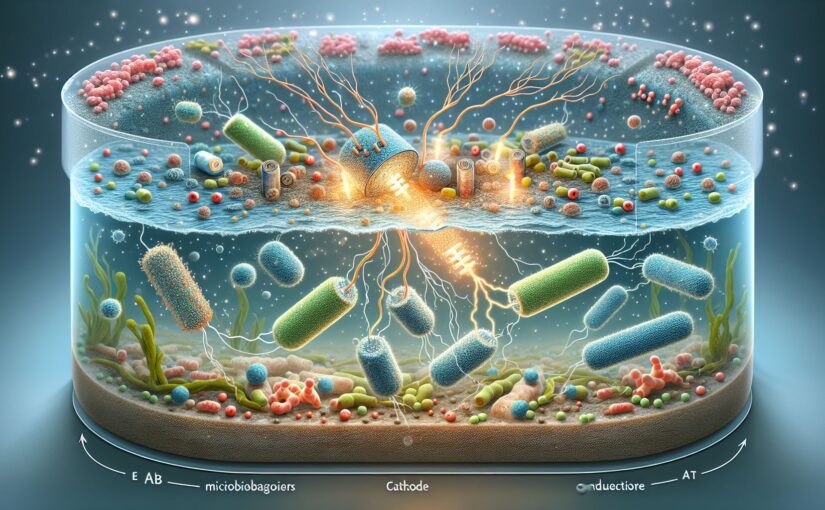In the current epoch of energy revolution, we are setting our sight on alternative and renewable energy resources. Amid all, the generation of bioelectricity from wastewater has emerged as a promising solution. Through utilizing the biochemical energy present in wastewater, we can produce electricity, and also treat the wastewater concurrently[^1^].
How Does it Work?
The generation of bioelectricity from wastewater operates primarily on the principle of microbial fuel cell (MFC) technology. MFC is a bio-electrochemical system that harnesses the power of bacteria to convert organic waste matter into electricity[^2^].
In a typical MFC, bacteria interact with the anode electrode, breaking down the organic substance present in the wastewater. During this process, electrons are released and transferred to the anode. These electrons then migrate to the cathode through an external circuit, generating an electric current.
Advantages of Wastewater Generated Bioelectricity
The primary benefits of wastewater-generated bioelectricity are twofold.
-
Sustainable Energy: Tapping into wastewater for electricity enables us to transform waste into a valuable resource. With rampant population growth and industrial development, wastewater generation is inevitable. Thus, it presents a reliable and sustainable energy source.
-
Wastewater Treatment: Wastewater is a significant global concern due to its massive environmental implications. By integrating energy production with wastewater treatment, we can manage the wastewater problem more effectively. Moreover, the treated water can be reused in several ways, multiplying the benefits[^3^].
Challenges and Future Direction
Despite its potential, the bioelectricity generation from wastewater has yet to become mainstream. Issues relate to the scalability of the system, the power density produced by the MFCs, and the cost-effectiveness of this method remain. Technological advancements and further research can help overcome these challenges and maximize the efficiency and output of these systems.
In a world grappling with energy issues and environmental problems, the concept of bioelectricity from wastewater introduces a ray of hope. As research progresses, it wouldn’t be surprising to see this technology emerging as a strong contender in the renewable energy market.
[^1^]: ScienceDaily: Power from sewage
[^2^]: U.S. Department of Energy: Harvesting electrical energy from waste heat
[^3^]: Bioresource Technology: Electricity from wastewater -Sustainable power stations
